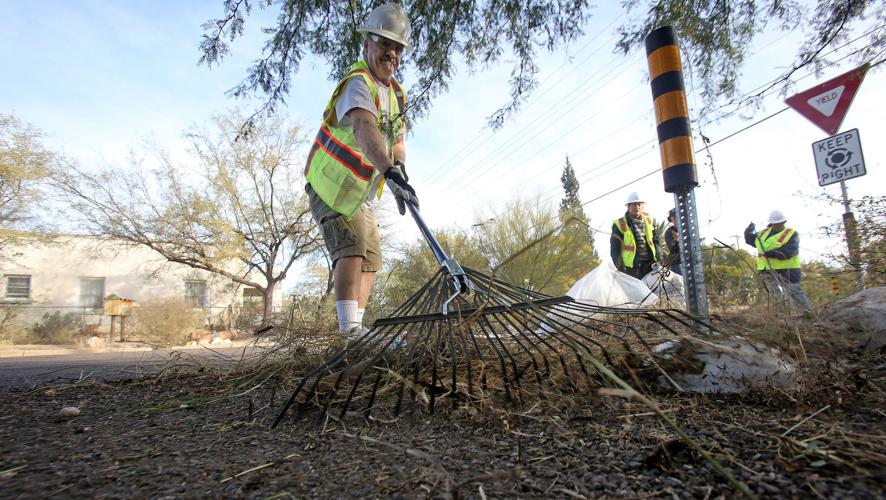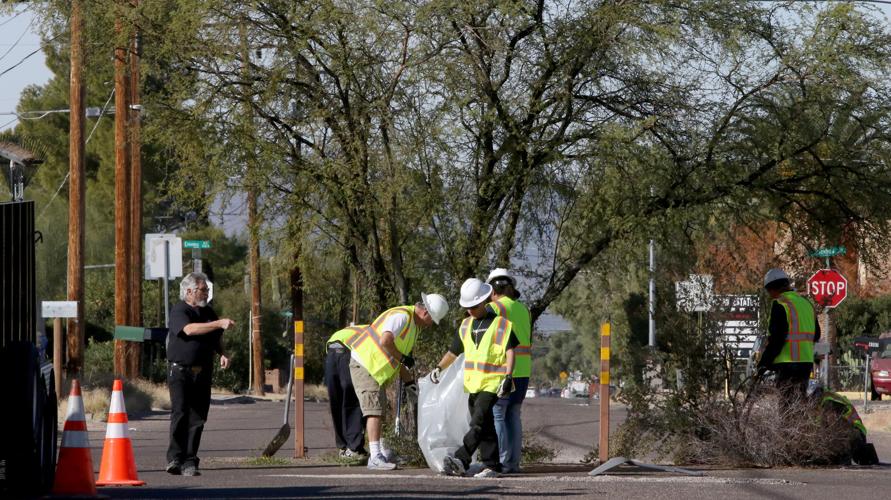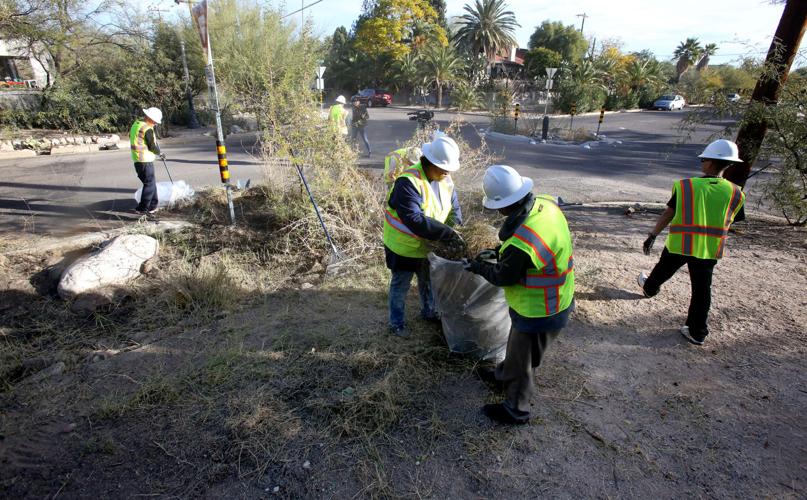Tucson is a little tidier today thanks to a new pilot program aimed at helping the homeless.
A small group of homeless residents spent part of Tuesday cleaning up city streets, medians and traffic circles in one of the city’s oldest neighborhoods. Leaves were raked and garbage was collected in the Dunbar/Spring Neighborhood.
And when the job was done, the six workers were paid for their labor as part of the new Tucson Homeless Work Program.
Some of those working Tuesday returned to the Primavera Men’s Shelter, where they had access to showers, clean clothing, a haircut and a hot meal.
On Thursdays, participants in the program will be picked up at the Salvation Army Hospitality House on North Main Avenue.
The new day-labor program, which began last week, runs twice a week, on Tuesdays and Thursdays, and hires homeless men and women.
Using a donated van, a program coordinator takes participants to a work site where they do landscaping and light clean-up work and at the end of a five- or six-hour shift they are paid in cash, $10 an hour — above the state’s minimum wage of $8.05 per hour.
The van transporting workers also has a trailer with a portable bathroom and tool storage. The work crew is supplied with tools and safety equipment to do the assigned job.
As part of the program, nonprofit agencies help participants enroll in the state’s Medicaid system, schedule appointments with behavioral-health providers and check to see if they qualify for other types of services.
A person may participate in the labor program for up to 12 days.
Those in the program also have access to the county’s Sullivan Jackson Employment Center, where they are enrolled in a program designed to help the homeless seeking full-time stable employment.
The program is the brainchild of the Tucson Change Movement, a merchant-driven initiative to raise funds for homeless programs and services and is based on similar models in Albuquerque, Denver and Los Angeles. Tucson City Councilman Richard Fimbres helped organize the new effort.
Humberto Lopez with HSL Properties matched funding from Pima County and the city of Tucson, presenting a $50,000 check to the program.
Mark Kerr, Fimbres’ chief of staff, confirmed that with the check from Lopez the program is fully funded for a year.
After the one-year pilot is over, Fimbres hopes funding to maintain and expand the program will come from business and public donations to the Tucson Change Movement.
Other community groups helping with the work program are Catholic Community Services, the Primavera Foundation, St. Andrew’s Presbyterian Church, Cenpatico, El Rio Community Health Center, Caridad Community Kitchen, Assurance Health and Wellness Center and Pima County One-Stop.






